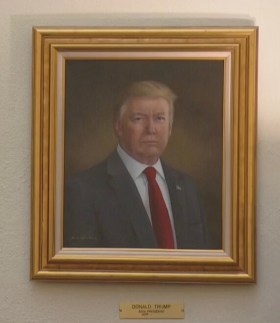Under the constant threat of economic scarcity in a cost of living crisis, freelance creatives and arts managers can struggle to set boundaries and say ‘no’ to opportunities, even when they promise little benefit. This can often result in an overly committed schedule and creative burnout.
Saying ‘yes’ to everything can also be a symptom of people-pleasing or controlling an otherwise volatile workspace. Therapist Nedra Glover Tawwab warns that the habit “breeds resentment or it builds up your walls” over time.
If you’re not used to saying ‘no’, there’s a chance the recipient won’t hear you properly. If you’re particularly conflict-avoidant or frightened of letting others down, your ‘no’ may not be as straightforward as you intend.
Keep things short and precise. If you’re uncertain about where to start, simply be honest. Remember, all research points to the idea that ‘clear is kind’. Being unclear will only cause further problems.
It can be relatively easy to diagnose a need to set boundaries or say ‘no’ to incoming job opportunities, but the practice is tricky for many people. Here are three essential tips for how to say ‘no’ to the latest project that’s arrived in your inbox.
The right tone to set boundaries: firm but polite
Your response may begin, ‘I’m sorry, but I won’t be accepting work on this project.’
That’s the only thing you owe most people contacting you. If you’d like to add a dash more manners or niceties to keep up communication with this person, consider the following:
- ‘Please keep me updated about this/other projects, as I appreciate being considered.’
- ‘Thank you for asking me. I appreciate being considered.’
- ‘I hope you and the team are keeping well, and I’m sure we’ll see each other soon.’
Being honest about your ‘no’
Your ‘no’ will be received with more respect (and likely lead to more work or more excellent opportunities in future), if you’re honest about your reasons for setting boundaries.
Below are some of the most common reasons you’d be considering saying ‘no’, and how to phrase your response professionally:
- They’re not offering nearly enough money. ‘Given the range of my portfolio, I don’t accept this kind of work for the money you’re currently able to offer.’
- I wouldn’t be caught dead with those people, let alone work with them. ‘With my current workload, I must be very particular about my projects and who I work with. At this time, I don’t believe I’m well-suited to your team environment.’
- What they’re offering is entirely inappropriate or unsuited to me. ‘My current workload and experience is in other areas. What you’re offering doesn’t speak to those areas, so I don’t think we’re a right fit.’
- This is a brilliant opportunity, but I don’t have time. ‘This is hard to say ‘no’ to, as I’m genuinely enthusiastic about working with you. Unfortunately, I don’t have the time to give you the kind of quality that I know you deserve.’
Signing off on your terms
When concluding your ‘no’, clarity is key. If you don’t want to engage in further communication with this person, make sure you note this:
‘With apologies, I’m unable to negotiate on these points. Thanks so much for your time.’
If you’re happy to keep the door open, note this, but be clear about your inability to take on the current project:
‘I would love to talk about other projects when the time is right. I’m sorry I can’t come on board at this time.’
If you have information or personnel that may benefit the person, offering assistance will keep you in an email spiral. Instead, be direct and include links or contact details for them to follow up.
‘Your note made me think of some others that may be more suitable for your task. Their LinkedIn profiles are below. Your project also made me think of these websites that may be of help. I’ve put links here for them too. I’m afraid that’s all I can offer for now. I will talk with you in the future.’
Remember, be clear and forthright. Your calendar (and mental health) will thank you.





